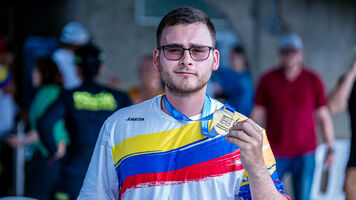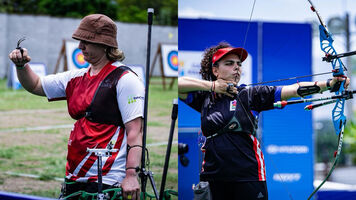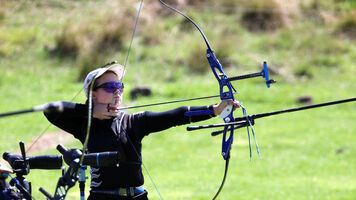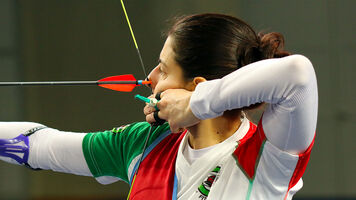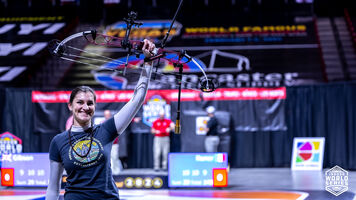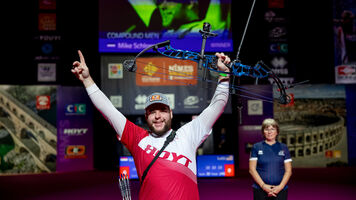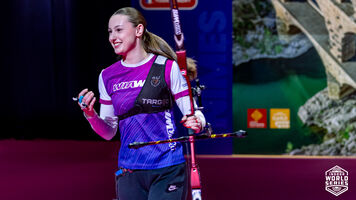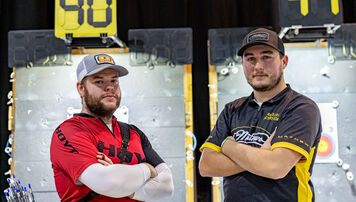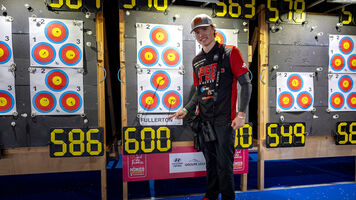Min Byeongyeon couronné chez les juniors (en anglais)
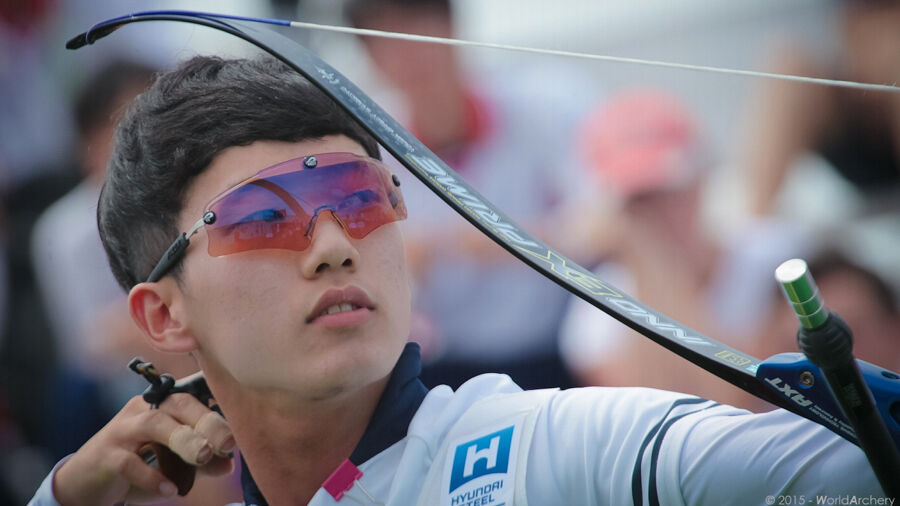
The worlds’ first introduction to the shooting machine that is Min Byeongyeon was at the third Indoor Archery World Cup stage of the 2014/15 season. It was quite an introduction.
In Nimes, he shot nine straight 10s to defeat reigning Olympic Champion Oh Jin Hyek to gold.
After the match, a bemused looking Jin Hyek raised Min’s hand into the air as he presented him to the crowd.
At the 2015 World Archery Youth Championships, and shooting for gold, Byeongyeon put on a similar show, despite not having the favour of the crowd.
He was shooting against host-nation archer Collin Klimitchek.
Byeongyeon opened with 9-10-10. Whatever the crowd’s preference was, it did not seem to faze him – and an early 2-0 lead settled whatever nerves the Korean might have been feeling.
“He shot one not good arrow and I took advantage,” said Min, referring to Collin’s seven with the last arrow of the first set. “It remained a tight match.”
The pair split the second after both scoring 29, then Byeongyeon took the last two sets by a point each.
“This is unbelievable,” said Min after walking out of the arena.
“I am a world champion for the first time in my life. But I cannot believe it just yet. It will come soon, I’m sure!”
Min beat top seed and teammate Lee Woo Seok in the semifinals.
Lee, shooting for junior men’s bronze on recurve Sunday in Yankton, was run tough by Turkey’s Muhammed Bilal Guneri.
After scything up through the brackets from the 38-seed position, Guneri had no interest in handing Woo Seok an easy match. He jumped on a poor start from the Korean to take a 2-0 lead.
The match went back and forth, levelling up after four at four set points apiece.
Woo Seok rose to the occasion.
The Nanjing 2014 Youth Olympic Champion finished with a 29-point set to claim the last two set points available and win bronze, 6-4.
Lee felt the tough pressure of expectation: “I needed to fulfil the expectations from those Games,” he explained. “The results here proved why I won in Nanjing and that the process we have at home works well.”
The recurve cadet women’s final was an all-Korean affair, something we’re used to seeing on the world stage.
Hyeong Yeajin started with a perfect 30 to jump aheadre before Sim Hyeonseung, who had already won two gold medals with her team and mixed team, levelled it up after two.
That was as far as Hyeongseung would get.
“I didn’t shoot my best,” admitted Sim, while she cleaned up her tears.
“It’s unfortunate I couldn’t show all the potential I have. I’m still leaving with two gold medals and a silver. That’s all I will keep from Yankton.”
Yeajin convincingly won the back two sets and prevented her teammate from picking up a hattrick of gold medals in the cadet girls’ competition.
Although the pair said they like to shoot against each other, they admitted doing so on such a stage was difficult.
Lee Seungjun became the second Korean cadet to win three medals, after Hyeonseung’s two wins and a runner-up finish, when he beat out China’s Liu Baijun to individual boys’ bronze.
He already had team and mixed team gold, the latter of which he won with Sim.
Two perfect sets of 30 points each closed out Lee’s match in, well, perfect style, and he took victory, seven set points to three.
During the recurve Sunday finals in Yankton, Korea did not lose a match.






